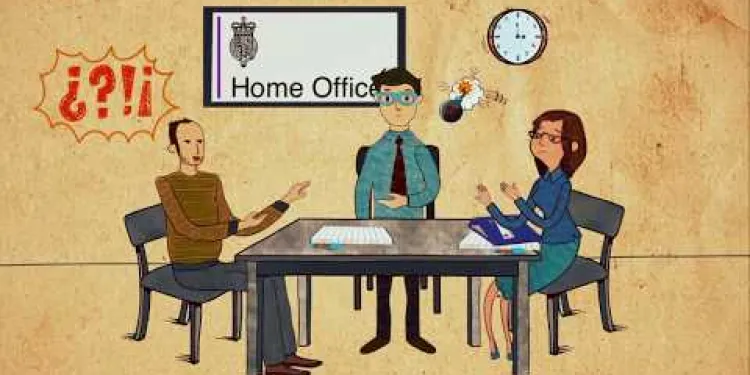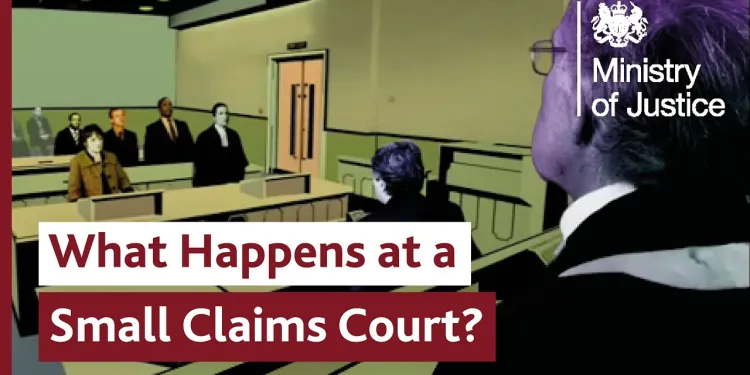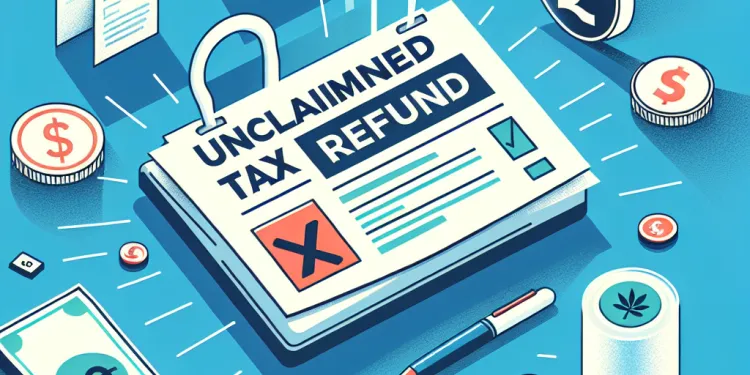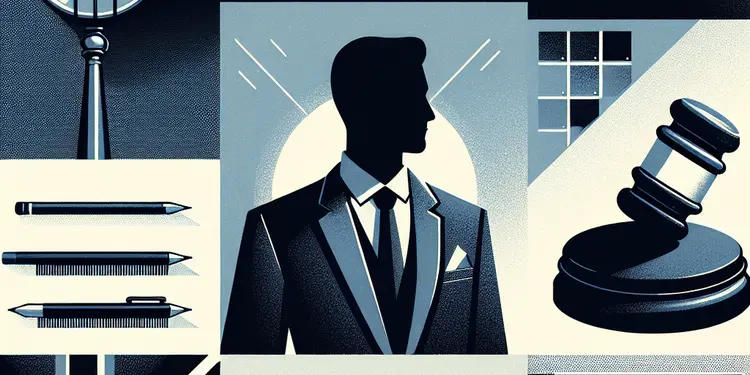Find Help
More Items From Ergsy search
-

An introduction to claiming asylum in the UK
Relevance: 100%
-

The asylum screening interview
Relevance: 75%
-

New Asylum Seekers Legislation Sparks Nationwide Debate
Relevance: 63%
-

Is there a minimum claim amount?
Relevance: 36%
-

Is there a deadline for making a claim?
Relevance: 36%
-

What Happens at Small Claims Court? Making a Court Claim for Money
Relevance: 35%
-

Can I make a claim online?
Relevance: 34%
-

What should I do if my claim is rejected?
Relevance: 33%
-

Who can claim PIP?
Relevance: 33%
-

Who should I contact to initiate my claim?
Relevance: 33%
-

Who can claim PIP?
Relevance: 33%
-

How do I file a claim with travel insurance?
Relevance: 33%
-

Do I need a lawyer to claim money back?
Relevance: 33%
-

What happens if I do not claim my tax refund?
Relevance: 32%
-

What evidence do I need to support my claim?
Relevance: 32%
-

Can I claim expenses as a gig worker?
Relevance: 32%
-

How do I claim the basic State Pension?
Relevance: 32%
-

What is the role of a water regulator in my claim?
Relevance: 32%
-

Can I make a joint claim with other users?
Relevance: 32%
-

Are there any fees to claim money back?
Relevance: 32%
-

Is there a deadline to claim the Winter Fuel Payment?
Relevance: 31%
-

What are the elements of a professional negligence claim?
Relevance: 31%
-

What expenses can I claim on my Self Assessment?
Relevance: 31%
-

What should I do if my holiday insurance claim is denied?
Relevance: 31%
-

Are professionals insured against negligence claims?
Relevance: 31%
-

What information do I need to provide to claim my refund?
Relevance: 31%
-

How can professionals avoid negligence claims?
Relevance: 31%
-

How do I claim my tax refund from HMRC?
Relevance: 31%
-

Can I claim compensation if I was mis-sold car finance?
Relevance: 30%
-

Can businesses claim the EV grant?
Relevance: 30%
-

Can Inheritance Tax be claimed back?
Relevance: 30%
-

What is the impact of a professional negligence claim on a professional's career?
Relevance: 30%
-

Does Ofgem handle compensation claims directly?
Relevance: 30%
-

What if I have moved house since the claim period?
Relevance: 30%
-

Is there a limit to how many EV grants I can claim?
Relevance: 30%
-

Can a professional negligence claim be filed against a company?
Relevance: 30%
-

How long do I have to file a professional negligence claim?
Relevance: 30%
-

How do I claim Ofgem compensation from Octopus Energy?
Relevance: 30%
-

Is there a time limit for claiming a refund on overpaid Council Tax?
Relevance: 29%
-

How can I claim money back from my water company?
Relevance: 29%
An Introduction to Claiming Asylum in the UK
Understanding Asylum
Asylum is a form of protection given by a country to foreign nationals who have fled persecution or serious harm in their own country. In the UK, the right to seek asylum is protected under international law, particularly the 1951 United Nations Convention Relating to the Status of Refugees and its 1967 Protocol.
Who Can Apply?
Anyone who is outside their country of nationality or habitual residence and is unable or unwilling to return because they fear persecution due to race, religion, nationality, political opinion, or membership in a particular social group can apply for asylum. This also includes those facing serious harm such as torture or threats to life.
The Application Process
To apply for asylum in the UK, an individual must make their claim in person at the port of entry (such as an airport or seaport) or at the UK Home Office in Croydon. The process involves an initial screening interview, where basic information is collected, followed by a substantive interview where more detailed questions about the applicant's situation are asked.
After the Application
While waiting for a decision, asylum seekers may be housed by the Home Office and receive a small weekly allowance. They are generally not allowed to work but can apply for permission to work if their case has not been resolved within a year. Once a decision is made, applicants will either be granted refugee status, humanitarian protection, or other leave to remain, or they may face refusal and potential removal from the UK.
Support and Legal Assistance
Claiming asylum can be a complex and daunting process. Applicants are encouraged to seek legal assistance from solicitors or organizations specializing in immigration law. Charities and support groups can also provide essential help and emotional support during this time. Being well-informed and prepared can significantly improve the chances of a successful asylum claim.
An Introduction to Claiming Asylum in the UK
Understanding Asylum
Asylum means getting safety in another country. Some people leave their own country because they are in danger. They might be hurt because of their race, religion, or ideas. The UK and other countries promise to help people like this. This promise is a special rule called the 1951 United Nations Convention.
Who Can Apply?
People can ask for asylum if they are not in their home country and are afraid to go back. They might be scared of being hurt or treated badly because of their race, religion, or ideas. They can also apply if they are in serious danger like torture.
The Application Process
If someone wants asylum in the UK, they must ask when they arrive at the airport or seaport. They can also go to the UK Home Office in Croydon. First, they have a short meeting to ask basic questions. Then, they have a big interview to talk more about their story.
After the Application
While waiting for an answer, asylum seekers might get a place to live and a small amount of money each week. They usually can't work. But, if it takes more than a year, they can ask for permission to work. When a decision is made, they might be allowed to stay or might have to leave the UK.
Support and Legal Assistance
Asking for asylum can be hard. It’s good to get help from lawyers who know immigration rules. Charities and support groups can also help a lot. Having good information makes it easier to apply for asylum.
Frequently Asked Questions
What is asylum?
Asylum is a form of international protection given by a country to foreign nationals who have fled their own country due to fear of persecution based on race, religion, nationality, membership of a particular social group or political opinion.
Who can claim asylum in the UK?
Anyone who is in the UK or at its borders can claim asylum, but they must be able to show that they have a genuine fear of persecution in their home country.
How do I apply for asylum in the UK?
You must make your application to a Home Office representative either at the border upon entry or once you are already in the UK. It’s best to seek legal advice before applying.
What documents do I need to apply for asylum?
Typically, you will need to provide identity documents such as a passport, as well as any other documentation that supports your asylum claim, such as evidence of persecution and reasons you cannot return to your home country.
Where will I live while my asylum claim is being processed?
You may be housed in asylum seeker accommodation provided by the Home Office, or you may live with friends or family if you have them in the UK.
Can I work while my asylum application is being processed?
Asylum seekers are generally not allowed to work while their application is being processed. You may be able to apply for permission to work if you have waited over 12 months for an initial decision.
What support am I entitled to as an asylum seeker?
You may be entitled to financial support and accommodation if you are destitute and do not have the means to support yourself.
How long does the asylum process take?
The length of the process can vary widely. While the Home Office aims to make a decision within six months, some cases can take much longer.
What is a screening interview?
A screening interview is the initial meeting with the Home Office where basic information about you and your reasons for seeking asylum are recorded.
What happens if my asylum claim is accepted?
If your claim is accepted, you will be granted refugee status or another form of protection, allowing you to stay in the UK for a certain period, usually five years, after which you can apply to settle permanently.
What if my asylum claim is refused?
If your claim is refused, you may appeal the decision or submit new evidence if circumstances change. Otherwise, you may have to leave the UK.
Can my family join me if I am granted asylum?
Yes, if you are granted refugee status, your immediate family members (spouse and children under 18) can apply to join you in the UK.
Will I receive healthcare while my asylum claim is processed?
Yes, asylum seekers are entitled to NHS healthcare, including registration with a GP and access to emergency treatment.
Can I travel outside the UK while my asylum claim is processed?
You should not travel outside the UK while your asylum claim is being processed, as this may be taken as evidence that you are not genuinely in need of protection.
What happens during an asylum interview?
During the substantive asylum interview, a Home Office caseworker will ask detailed questions about your reasons for seeking asylum, including your personal history and any evidence of persecution.
What is asylum?
Asylum means asking for safety in another country. People leave their home because they are scared or in danger. They ask another country to protect them and keep them safe.
Support tools:
- Pictures can help you understand.
- Ask someone to read with you.
- Use apps that read text out loud.
Asylum means help and safety that one country gives to people from another country. These people leave their home because they are scared. They are scared because of their race, religion, which group they are part of, or what they think about politics.
Who can ask to stay safe in the UK?
If you are in the UK or at the borders, you can ask for asylum. You need to show that you are really scared of being hurt in your country.
How do I ask to stay safe in the UK?
If you need to be safe and want to stay in the UK, you can ask the government for help. This is called asking for asylum.
Here are simple steps to ask for asylum:
- Let someone at the border or airport know you need help and want to ask for asylum.
- You can call the asylum helpline. Someone will give you their phone number when you arrive in the UK.
- You will have a meeting with a person from the government. They will ask you questions.
It can be a difficult process, but you are not alone. You can ask for help from a lawyer or a support group. They can help you understand what to do.
Remember to ask for help if you find it hard to read or write. Support tools like talking apps or translation apps can also make it easier.
You need to talk to a Home Office worker to apply. You can do this at the border when you come to the UK, or after you are already in the UK. It’s a good idea to ask a lawyer for help before you apply.
What papers do I need to ask for asylum?
Asking for asylum means you are asking a new country to keep you safe. To do this, you need some important papers. Here are the papers you need:
- Your ID: This could be your passport or birth certificate. It tells who you are.
- Your story: Write down why you need help. Explain why your home is not safe.
- Proof: If you have pictures or letters that show why you are not safe, bring them too.
If you need help, ask a friend or a worker to help you. There are also phones and computers that can help you get information.
To ask for asylum, you usually need to show who you are with papers like a passport. You also need to bring any other papers that help tell your story. These papers should show why it is not safe for you to go back to your home country.
Here are some things that can help you:
- Ask a grown-up or a helper to look at your papers with you.
- Use a highlighter to mark important parts in your papers.
- Try to put your papers in order so they make a clear story.
Where will I live while waiting for my asylum claim?
If you ask for asylum, you need a place to live. The government will help you find somewhere safe.
Here are some things that might happen:
- The government might give you a house or a room to stay in.
- You might live with other people who are also waiting for asylum.
Don't worry; you won't be alone.
If you need help, here are some things you can do:
- Ask someone you trust to help you.
- Use a dictionary to understand hard words.
Remember, it's okay to ask for help!
You might get a place to stay from the Home Office. This is for people asking for asylum. Or, you might live with friends or your family if they are in the UK.
Can I get a job while waiting for my asylum decision?
If you are asking for asylum and waiting for an answer, you might want to know if you can work.
Here is some information to help you:
- You usually have to wait a bit before you can start working.
- Sometimes, you might need special permission.
- Ask someone who knows the rules to help you understand what you can do.
People who ask to stay in a new country are called asylum seekers. Usually, they cannot get a job while waiting for a decision. But if they wait more than 12 months, they might be able to ask to work.
What help can I get if I am seeking asylum?
If you are asking for asylum, you can get help.
Here are some things you can get:
- A place to live
- Money for food and clothes
- Medical care if you are sick
If you need help or have questions, you can talk to someone for advice. They can tell you what to do and where to go.
You can get help with money and a place to stay if you have no money and nowhere to live.
Here are some things that might help you:
- Ask someone you trust to help you understand this.
- Look for local groups or charities that help people who need support.
- Use apps or tools that read the text out loud.
How long does it take to get asylum?
Asylum is when you ask to live in another country because it's not safe at home.
Getting asylum can take a long time. It might take a few months or even years.
If you need help understanding the process, ask a friend or use a computer to find simple guides.
You can talk to a support worker for advice, too.
The time it takes can be very different for each person. The Home Office tries to decide within six months, but some people might have to wait longer.
What is a screening interview?
A screening interview is a short meeting. It helps to decide if a person is right for a job. This meeting is often on the phone. Sometimes it is done face-to-face or online.
In the screening interview, a company asks basic questions. They want to know about your skills and experiences. It is your chance to show you are a good fit for the job.
Here are some tips to help:
- Listen carefully to each question.
- Answer with simple words.
- If you do not understand, ask for the question to be repeated.
- You can practice with a friend before the interview.
- It is okay to pause and think before you answer.
A screening interview is the first meeting with the Home Office. In this meeting, they will ask you some simple questions about you and why you need asylum.
What happens if they say yes to my asylum claim?
If we say yes to your claim, you can stay as a refugee or get other help. You can live in the UK for some time, often five years. After that, you can ask to live here forever.
What happens if they say no to my asylum claim?
If they say no to your asylum claim, you can ask for help. Here are some things you can do:
- Ask a lawyer for help: A lawyer can help you understand what to do next.
- Check if you can appeal: You might be able to tell them why you think their decision is wrong.
- Look for advice: Talk to people or groups who understand asylum claims. They can give you tips and support.
Remember, there are people who can help you. You are not alone.
If you are told "no" to your claim, you can ask them to look at it again. This is called an appeal. You can also show them new information if things have changed. If you don't do this, you might have to leave the UK.
If I get asylum, can my family come with me?
Yes, if you get refugee status, your close family (husband or wife and children under 18) can ask to come to the UK to be with you.
Can I see a doctor while waiting for my asylum decision?
Yes, you can see a doctor while you wait. Here are some tips:
- Use simple words when you talk to the doctor.
- Ask someone to come with you if you need help.
- Write down your questions before your visit.
- Take notes about what the doctor says.
These steps can help make your visit easier.
Yes, people asking for asylum can use NHS healthcare. They can sign up with a doctor and get help if there is an emergency.
Can I leave the UK while waiting for my asylum decision?
If you are waiting for a decision on your asylum claim, you should not leave the UK. Leaving the UK can stop your asylum claim. It is important to stay in the UK until you get your decision.
If you need help or have questions, you can talk to someone who helps people with asylum claims. They can tell you what to do.
Do not leave the UK while waiting for a decision about your asylum. It might make people think you do not really need help.
What happens in an asylum interview?
In the asylum interview, a person talks to an officer. They tell their story about why they left their home country. The officer listens carefully.
Here are some things to remember:
- Be honest and tell the truth.
- It's okay to say if you don't understand a question.
- You can ask for a translator if you need one.
Support tools:
- Bring someone to help, like a friend or support worker.
- Take deep breaths to stay calm.
- Use pictures or drawings if they help tell your story.
During the asylum interview, a person from the Home Office will ask you questions. They want to know why you need asylum. They will ask about your life and any times you were treated badly.
Useful Links
This website offers general information and is not a substitute for professional advice.
Always seek guidance from qualified professionals.
If you have any medical concerns or need urgent help, contact a healthcare professional or emergency services immediately.
Some of this content was generated with AI assistance. We’ve done our best to keep it accurate, helpful, and human-friendly.
- Ergsy carfully checks the information in the videos we provide here.
- Videos shown by Youtube after a video has completed, have NOT been reviewed by ERGSY.
- To view, click the arrow in centre of video.
- Most of the videos you find here will have subtitles and/or closed captions available.
- You may need to turn these on, and choose your preferred language.
- Go to the video you'd like to watch.
- If closed captions (CC) are available, settings will be visible on the bottom right of the video player.
- To turn on Captions, click settings .
- To turn off Captions, click settings again.
More Items From Ergsy search
-

An introduction to claiming asylum in the UK
Relevance: 100%
-

The asylum screening interview
Relevance: 75%
-

New Asylum Seekers Legislation Sparks Nationwide Debate
Relevance: 63%
-

Is there a minimum claim amount?
Relevance: 36%
-

Is there a deadline for making a claim?
Relevance: 36%
-

What Happens at Small Claims Court? Making a Court Claim for Money
Relevance: 35%
-

Can I make a claim online?
Relevance: 34%
-

What should I do if my claim is rejected?
Relevance: 33%
-

Who can claim PIP?
Relevance: 33%
-

Who should I contact to initiate my claim?
Relevance: 33%
-

Who can claim PIP?
Relevance: 33%
-

How do I file a claim with travel insurance?
Relevance: 33%
-

Do I need a lawyer to claim money back?
Relevance: 33%
-

What happens if I do not claim my tax refund?
Relevance: 32%
-

What evidence do I need to support my claim?
Relevance: 32%
-

Can I claim expenses as a gig worker?
Relevance: 32%
-

How do I claim the basic State Pension?
Relevance: 32%
-

What is the role of a water regulator in my claim?
Relevance: 32%
-

Can I make a joint claim with other users?
Relevance: 32%
-

Are there any fees to claim money back?
Relevance: 32%
-

Is there a deadline to claim the Winter Fuel Payment?
Relevance: 31%
-

What are the elements of a professional negligence claim?
Relevance: 31%
-

What expenses can I claim on my Self Assessment?
Relevance: 31%
-

What should I do if my holiday insurance claim is denied?
Relevance: 31%
-

Are professionals insured against negligence claims?
Relevance: 31%
-

What information do I need to provide to claim my refund?
Relevance: 31%
-

How can professionals avoid negligence claims?
Relevance: 31%
-

How do I claim my tax refund from HMRC?
Relevance: 31%
-

Can I claim compensation if I was mis-sold car finance?
Relevance: 30%
-

Can businesses claim the EV grant?
Relevance: 30%
-

Can Inheritance Tax be claimed back?
Relevance: 30%
-

What is the impact of a professional negligence claim on a professional's career?
Relevance: 30%
-

Does Ofgem handle compensation claims directly?
Relevance: 30%
-

What if I have moved house since the claim period?
Relevance: 30%
-

Is there a limit to how many EV grants I can claim?
Relevance: 30%
-

Can a professional negligence claim be filed against a company?
Relevance: 30%
-

How long do I have to file a professional negligence claim?
Relevance: 30%
-

How do I claim Ofgem compensation from Octopus Energy?
Relevance: 30%
-

Is there a time limit for claiming a refund on overpaid Council Tax?
Relevance: 29%
-

How can I claim money back from my water company?
Relevance: 29%


